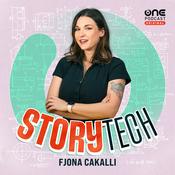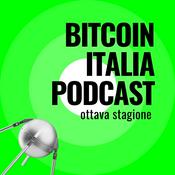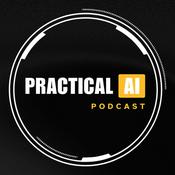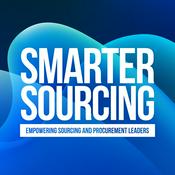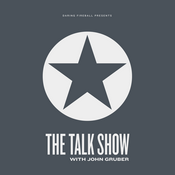33 episodi
The Private Company Bringing Nuclear Enrichment Back to America (Scott Nolan, CEO of General Matter)
03/02/2026 | 1 h 16 minRoughly 20% of the U.S. power grid runs on nuclear energy. A quarter of the fuel behind it is headed toward a hard stop. In this episode, I sit down with Scott Nolan, founder and CEO of General Matter, to unpack why uranium enrichment has quietly become one of the most consequential industrial bottlenecks of the 21st century. While at Founders Fund, Scott spent over a year searching for an American enrichment company to back. When he couldn’t find one, he decided to build it himself. Less than a year after emerging from stealth, General Matter secured a historic enrichment site in Paducah, Kentucky, and was awarded a $900 million Department of Energy contract—marking one of the first serious efforts to rebuild domestic enrichment capacity ahead of the 2028 ban on Russian supply.
In this episode, we discuss:
Why enrichment is the missing link in America’s nuclear supply chain
How the U.S. went from controlling 86% of global enrichment capacity to effectively none at commercial scale
The science behind uranium enrichment and why it matters for next-generation reactors
Why Scott applied the SpaceX playbook to nuclear after more than a decade in venture capital
How General Matter is revitalizing the historic Paducah, Kentucky enrichment site
The significance of General Matter’s $900 million Department of Energy contract
The bipartisan political support for expanding nuclear energy
Why Scott believes nuclear energy could grow 3-4x by 2050
The parallels between America’s space and nuclear industries
—
Thank you to our sponsor, Persona: Trusted identity verification for any use case.
—
Transcript: https://www.generalist.com/p/the-private-company-bringing-nuclear
—
Timestamps
(00:00) Introduction to Scott Nolan
(03:11) General Matter’s mission to rebuild U.S. enrichment
(05:06) How the U.S. lost its edge
(06:28) The nuclear fuel cycle explained—and where enrichment fits
(08:30) Scott’s background: From SpaceX and Founders Fund to General Matter
(13:54) Lessons from SpaceX
(17:32) How Scott’s focus evolved over 13 years at Founders Fund
(20:57) How Scott landed on nuclear enrichment
(25:55) Why nuclear energy was off the radar—until recently
(30:07) Finding the right partner: Scott and Lee’s collaboration
(32:01) What downblending means and why it matters
(33:26) How U.S. uranium enrichment quietly came to an end
(38:32) The Russian uranium ban and the 2028 supply cliff
(40:38) How General Matter plans to compete
(43:05) Building a world-class team
(46:38) The market for enriched uranium
(49:31) Future bottlenecks
(50:53) What the U.S. needs to actually scale nuclear energy
(52:40) Uranium supply constraints
(54:14) LEU vs. HALEU: the fuels powering old and new reactors
(57:01) Why 20% enrichment is a critical threshold
(59:30) Why General Matter chose Paducah, Kentucky
(1:04:34) Legislation and executive orders easing nuclear friction
(1:09:42) The $900 million Department of Energy award
(1:11:00) Why mission matters most
(1:14:12) Final meditations
—
Follow Scott Nolan
X: https://x.com/ScottNolan
—
Resources and episode mentions: https://www.generalist.com/p/the-private-company-bringing-nuclear
—
Production and marketing by penname.co. For inquiries about sponsoring the podcast, email [email protected].Programming Sunlight: How Reflect Orbital Is Building Satellites to Redirect Light From Space (Ben Nowack, Founder & CEO)
20/01/2026 | 1 h 18 minMost energy conversations start with scarcity. This one starts with abundance. Sunlight powers nearly everything on Earth, directly or indirectly. And yet we have almost no control over when or where we get it. Ben Nowack thinks that’s a solvable problem. Ben is the founder and CEO of Reflect Orbital, a company building satellites designed to redirect sunlight from space—not as a thought experiment, but as a product. The company nearly died before it worked. Eight months in, Ben had $300 left and was living in a garage. He made a deliberate decision to go $50,000 into credit card debt to finish critical tests. At one point, he was down to $21 of available credit. A month later, Reflect raised its first round. Today, the company is preparing to launch its first revenue-generating satellites. This is a conversation about building conviction, finding the real market, and what changes when a fundamental resource becomes programmable.
In our conversation, we explore:
How Reflect’s satellites work
The surprising pivot from energy to lighting applications that made the business immediately viable
Ben’s remarkable journey from building RC planes and X-ray machines in high school to founding Reflect
Why previous attempts at space mirrors failed and what’s changed to make this possible now
The near-death moment when Ben went $50,000 into credit card debt to keep his vision alive
How Reflect plans to scale from moonlight-level brightness to potentially powering solar farms
The company’s first satellite launches planned for this year, and their path to a full constellation
The wide range of applications, from emergency response to municipal lighting to agriculture
—
Timestamps
(00:00) Introduction to Ben Nowack
(02:26) What Reflect Orbital is building
(05:07) How the satellite constellation works
(08:00) What Reflect is launching this year
(10:35) Finding early markets
(13:43) Ben’s childhood and early building experiences
(22:04) What Ben learned working for startups
(28:03) High school projects: X-ray machines, rocket engines, and fusion reactors
(33:14) The eureka moment that led to Reflect
(35:24) Early validation of the idea
(38:35) The Russian space mirror experiments of the 1990s and what’s changed
(42:31) Partnering with Tristan Similac as co-founder
(45:05) Baiju Bhatt’s involvement
(47:04) Why Reflect isn’t pivoting to space-based data centers
(50:54) Common misconceptions about Reflect’s technology
(55:11) Why programmable light is valuable
(1:01:28) Initial target markets
(1:03:42) The future markets for Reflect
(1:07:33) Reflect’s company culture and operational philosophy
(1:12:05) Surprises and struggles in building Reflect
(1:14:56) Putting the idea to the test
—
Follow Ben Nowack
LinkedIn: https://www.linkedin.com/in/ben-nowack
X: https://x.com/bennbuilds
—
Resources and episode mentions
—People—
Vladimir Syromyatnikov: https://en.wikipedia.org/wiki/Vladimir_Syromyatnikov
Tristan Semmelhack on LinkedIn: https://www.linkedin.com/in/tristan-semmelhack-6a1ba0149
Baiju Bhatt on LinkedIn: https://www.linkedin.com/in/bprafulkumar
Marc Andreessen on X: https://x.com/pmarca
J.P. Morgan: https://en.wikipedia.org/wiki/J._P._Morgan
Ric Burton on LinkedIn: https://www.linkedin.com/in/richardjburton
—Other resources—
Reflect Orbital: https://www.reflectorbital.com
Zipline: https://www.zipline.com
Cassegrain: https://en.wikipedia.org/wiki/Cassegrain_reflector
Advanced Composite Solar Sail System (ACS3): https://www.nasa.gov/mission/acs3
Znamya: https://en.wikipedia.org/wiki/Znamya_(satellite)
Aetherflux: https://www.aetherflux.com
Elon Musk’s post on X about building a sentient sun: https://x.com/elonmusk/status/1985048731818094950
Denali: https://en.wikipedia.org/wiki/Denali
—
Production and marketing by penname.co. For inquiries about sponsoring the podcast, email [email protected].Nothing’s Carl Pei on Building a $1B Smartphone Company, Why He Left OnePlus After 10 Days of Retirement, and Why He Thinks About Death Every Week
13/01/2026 | 1 h 19 minCarl Pei is the founder of Nothing, the consumer electronics company known for its distinctive transparent design language across smartphones and audio products. Before launching Nothing in 2020, Carl co-founded OnePlus, where he spent seven years helping build it into a major smartphone brand. But Carl’s instincts as a builder showed up much earlier. As a teenager, he taught himself to code by building Pokémon fan sites, all while moving between China, the U.S., and Sweden. That combination of early creation and constant change shaped a founder comfortable with uncertainty—and deeply motivated by questions bigger than products. Carl thinks often about time and mortality, is skeptical of early retirement, and believes creativity is humanity’s real advantage. In an industry obsessed with optimization, he’s focused on making technology feel meaningful again.
In our conversation, we explore:
The origins of Nothing’s transparent design language and how it helps differentiate the brand in a mature, competitive market
Carl’s childhood fascination with mortality and how it continues to drive his ambition today
Nothing’s multiple near-death experiences, from 80% defect rates on first products to fundraising struggles
Why India has become a crucial market for Nothing’s smartphone business
How Nothing approaches community involvement, including letting users invest alongside VCs
The company’s approach to integrating AI features without overhyping the technology
Carl’s admiration for Genghis Khan’s management style and talent acquisition approach
The future of consumer electronics beyond smartphones
—
Thank you to our sponsor, Guru — The AI source of truth for work
—
Transcript: https://www.generalist.com/p/nothings-carl-pei-on-building-a-1b-smartphone-company
—
Timestamps
00:00) Introduction to Carl Pei and Nothing
(02:44) Nothing’s long-term vision
(06:33) How existential thinking shapes Carl’s motivation
(10:12) Why Carl’s planned sabbatical ended after ten days
(12:35) Carl’s international upbringing
(16:02) Entrepreneurial experiments in China
(19:10) Carl’s competitive nature and attitude toward school
(25:30) Lessons from seven years at OnePlus
(28:07) Taking a break at age 31
(30:50) Carl’s fundraising strategy
(33:26) Why Carl chose London for Nothing’s HQ
(35:12) Lessons from Genghis Khan
(38:38) Nothing’s first near-death moment
(42:56) Nothing’s product evolution and breakout hits
(45:24) Partnering with Teenage Engineering
(49:28) Design inspirations
(51:36) How Nothing recruits talent
(53:42) Nothing’s approach to marketing
(56:51) How India became a key market
(59:48) Why Nothing created CMF
(1:02:12) Why Carl is bullish on India
(1:03:32) How Carl thinks about AI
(1:07:05) Rethinking ads based on community feedback
(1:09:05) How Nothing leverages community
(1:11:23) Why AI hardware is struggling
(1:13:37) Carl’s thoughts on the future of consumer electronics
(1:15:10) Philosophies that shape Carl’s worldview
(1:16:45) Final meditations
—
Follow Carl Pei
LinkedIn: https://www.linkedin.com/in/getpeid
X: https://x.com/getpeid
—
Resources and episode mentions: https://www.generalist.com/p/nothings-carl-pei-on-building-a-1b-smartphone-company
—
Production and marketing by penname.co. For inquiries about sponsoring the podcast, email [email protected].Why Being a Generalist VC Is a Competitive Advantage (Aydin Senkut, Founder & Managing Partner at Felicis Ventures)
09/12/2025 | 1 h 16 minTwo decades ago, Aydin Senkut was a first-time fund manager with a thin track record to show prospective backers. LPs didn’t believe a solo GP, especially one without experience at a legacy firm, could build a lasting franchise. They were wrong. Today, Felicis is a Silicon Valley mainstay on its 10th fund, a $900M vehicle. Across its history, Felicis has backed a slew of winners, including Shopify, Canva, Crusoe, and dozens of other billion-dollar outcomes. Rather than specialize over time, Aydin has remained a true generalist, investing across markets and cycles. In this conversation, we dig into the frameworks, stories, and philosophies that shaped Felicis into what it is — and where Aydin believes the next decade of technology is heading.
We explore:
How growing up in Turkey with entrepreneur parents shaped Aydin’s approach to risk and investing
Lessons from working alongside Larry Page and Sergey Brin during Google’s early days
Why Felicis deliberately chose a generalist strategy when most VCs were specializing
How international experience became a competitive advantage in finding global winners
The mathematical case for portfolio diversification (50-70 companies per fund)
Why valuation concerns are often overblown when revenue growth is exponential
Felicis’s aggressive AI investment strategy and what other investors are missing
The future of robotics and physical AI through companies like Skild AI
Why learning and adapting rapidly is Felicis’s constitutional principle
—
Thank you to our sponsor, Guru: The AI source of truth for work.
—
Transcript: https://www.generalist.com/p/why-being-a-generalist-vc-is-a-competitive-advantage
—
Timestamps
(00:00) Introduction
(03:09) How Aydin made his way to Silicon Valley
(06:15) What he learned from his entrepreneurial parents
(08:55) Learnings from the early days at Google
(15:05) The childhood roots of his investing philosophy
(16:31) Why rejection became a catalyst for his venture career
(19:28) Strategy behind Felicis's first $41M fund
(25:44) How his international background became an investing edge
(28:17) How Aydin approaches diversification at scale
(32:08) How he sizes investments based on conviction
(33:15) Generalist vs. specialist investing
(38:23) Why founders are the foundation
(42:48) Why success may look different than expected
(43:46) The Felicis journey
(48:18) Why Felicis is going all in on AI
(54:54) Why entry point matters less than potential
(57:33) How the AI bubble debate misses the point
(59:47) What makes Skild AI a standout company
(01:04:58) The AI bets Felicis missed
(01:07:55) How missing Airbnb and Uber led to backing Adyen
(01:11:20) Final meditations
—
Follow Aydin Senkut
LinkedIn: https://www.linkedin.com/in/aydins
X: https://x.com/asenkut
—
Resources and episode mentions
—Books—
Antifragile: Things That Gain from Disorder: https://www.amazon.com/Antifragile-Things-That-Disorder-Incerto-ebook/dp/B0083DJWGO
Clear Thinking: Turning Ordinary Moments into Extraordinary Results: https://www.amazon.com/Clear-Thinking-Turning-Ordinary-Extraordinary/dp/0593086112
—People—
Larry Page: https://en.wikipedia.org/wiki/Larry_Page
Sergey Brin: https://en.wikipedia.org/wiki/Sergey_Brin
Eric Schmidt: https://en.wikipedia.org/wiki/Eric_Schmidt
Brian Chesky on X: https://x.com/bchesky
Shane Parrish’s blog: https://fs.blog
—Other resources—
Felicis: https://www.felicis.com
Mastering Portfolio Construction: https://www.generalist.com/p/mastering-portfolio-construction
Steve Jobs’s quote on focus: https://www.goodreads.com/quotes/629613-people-think-focus-means-saying-yes-to-the-thing-you-ve
Angry Birds: https://www.angrybirds.com
Rovio: https://www.rovio.com
Adyen: https://www.adyen.com
Canva: https://www.canva.com
...Resources continued at: https://www.generalist.com/p/why-being-a-generalist-vc-is-a-competitive-advantage
—
Production and marketing by penname.co. For inquiries about sponsoring the podcast, email [email protected].Joey Krug on Prediction Markets, Crypto Treasuries & the Next Era of On-Chain Finance (Partner at Founders Fund)
02/12/2025 | 1 h 15 minPrediction markets are no longer a fringe curiosity. They are becoming one of the most revealing instruments in modern finance. Platforms like Polymarket, once a niche corner of crypto, now regularly clear billions in monthly volume as traders speculate on everything from political outcomes to sports to cultural events. Few people saw this future as early, or as clearly, as Joey Krug.
A decade before prediction markets went mainstream, Joey dropped out of college to co-found Augur, the first decentralized prediction market protocol. He later became one of the most influential investors in the category by backing Polymarket at Founders Fund. In this conversation, Joey shares why the moment for prediction markets has finally arrived, what has changed, and how these markets are reshaping information flows across society.
We explore:
The experimental mindset that led Joey from horse-racing predictions to mining bitcoin in high school
Why Augur was the right idea at the wrong moment, and what it taught Joey about timing and infrastructure
The product, liquidity, and founder-market fit signals that persuaded Founders Fund to back Polymarket
Why resolution is the hardest problem in prediction markets, and how Polymarket approaches it
How crypto treasury companies are emerging as a major force and where ETFs fit in
Why mimetic behavior drives entire sectors and how savvy investors read those waves
The rise and fall of Operation Choke Point and its impact on crypto
How Founders Fund reframed Joey’s approach to evaluating founders, markets, and structural shifts
—
Thank you to the partners who make this possible
Guru: The AI source of truth for work.
Auth0: Secure access for everyone. But not just anyone.
—
Transcript: https://www.generalist.com/p/joey-krug-on-prediction-markets
—
Timestamps
(00:00) Intro
(04:10) How Joey began making predictions with horse racing
(08:00) Why Joey began coding with Applesoft BASIC
(09:32) How Joey first discovered crypto
(11:06) Why Joey dropped out of school to pursue crypto
(12:52) The origins of Joey’s interest in medical school
(16:15) How Joey spends nights and weekends splitting time between biotech and trading
(17:18) The early influences behind Augur’s creation
(19:40) Why prediction markets captivated early crypto thinkers
(23:26) The unlock crypto created for prediction markets
(29:22) How Polymarket began and why Joey decided to back it
(32:11) What made Polymarket the right team
(35:25) The FBI raid and how Shane responded
(38:20) Why Joey expected Polymarket’s volume to hold after the election
(40:20) The trend toward duopolies in financial markets
(42:37) What sets Polymarket’s product design apart
(45:25) How to keep prediction markets clear and unambiguous
(48:31) The rise of crypto treasury companies and FF’s work with BitMine
(51:26) The value of crypto treasuries and the role of ETFs
(54:33) The mimetic rise of crypto treasury companies
(57:03) Joey’s take on where the crypto market stands now
(1:00:23) Why Founders Fund is bullish on ETH
(1:03:03) Operation Choke Point, regulatory whiplash, and the end of the crypto crackdown
(1:06:04) Where the Clarity Act falls short
(1:08:56) How Joey’s thinking has evolved since joining Founders Fund
(1:13:21) Final meditations
—
Follow Joey Krug
LinkedIn: https://www.linkedin.com/in/joeykrug
—
Resources and episode mentions: https://www.generalist.com/p/joey-krug-on-prediction-markets
—
Production and marketing by penname.co. For inquiries about sponsoring the podcast, email [email protected].
Altri podcast di Tecnologia
Podcast di tendenza in Tecnologia
Su The Generalist
“The future is already here. It’s just not evenly distributed.”
The Generalist Podcast brings you weekly conversations with the people who live in these pockets of the future – visionary founders, prescient investors, and original thinkers. Each episode is designed to introduce you to new ideas, technologies, and markets and help you prepare for the world of tomorrow.
Sito web del podcastAscolta The Generalist, Lex Fridman Podcast e molti altri podcast da tutto il mondo con l’applicazione di radio.it

Scarica l'app gratuita radio.it
- Salva le radio e i podcast favoriti
- Streaming via Wi-Fi o Bluetooth
- Supporta Carplay & Android Auto
- Molte altre funzioni dell'app
Scarica l'app gratuita radio.it
- Salva le radio e i podcast favoriti
- Streaming via Wi-Fi o Bluetooth
- Supporta Carplay & Android Auto
- Molte altre funzioni dell'app


The Generalist
Scansione il codice,
scarica l'app,
ascolta.
scarica l'app,
ascolta.






